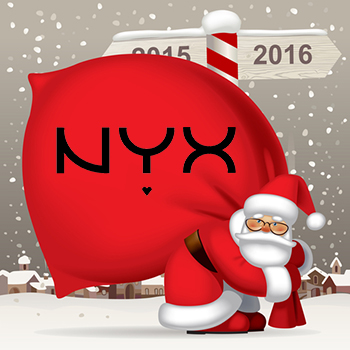NYX, the now L’Oréal-owned mass cosmetics brand that has taken the beauty market by storm, opened its first retail locations in Arcadia and Torrance, CA, in October. The brand has already opened a third location in Rancho Cucamonga, CA, and plans to open at least two additional locations in California before the end of the year. Major plans are apparently in place to transform the chain into a national retailer in early 2016, as initial signage has popped up in malls around the United States indicating that NYX is “coming soon,” potentially disrupting the beauty retailing landscape in a major way.
NYX had already altered the mass beauty market by covertly acquiring a cult-like following via a modern twist on grassroots marketing: putting free products in the hands of beauty vloggers. In just a few short years, this simple effort catapulted the brand above $100 million in retail sales, and NYX now sits among the top 20 brands in the mass segment, according to the latest edition of Kline’s Cosmetics & Toiletries USA report.
While NYX (and other newer value entrants, like e.l.f.) eroded share from stalwarts like Cover Girl (Procter & Gamble) and Revlon, L’Oréal, which already led the mass makeup market with its Maybelline and L’Oréal Paris brands, turned this threat into an opportunity by acquiring NYX in June 2014. NYX has continued to blossom under this new ownership through its existing distribution network of leading retailers, such as Ulta, Target, and CVS.
Now that NYX is entering the specialty retailing arena, the brand will be a stone’s throw from retailers like Sephora, MAC, and Macy’s, directly competing with prestige brands. The newness factor alone will undoubtedly attract consumers. In a world where discounts and promotions have become the norm, NYX’s value pricing will certainly appeal to shoppers. The move also seems to coincide with the brand’s subtle repositioning, emphasizing the words “professional makeup” as a tagline. This will help elevate the brand in the minds of shoppers and further intensify competition with makeup artist brands like MAC.
NYX’s stores are reportedly the only physical locations where the entire brand lineup will be available. The in-store environment is expected to build a sense of community and deepen the brand’s relationships with its most popular social media influencers by hosting meet-ups and in-store content takeovers with influencers, appealing to NYX’s largely millennial, social media consumer base.
NYX’s foray into retailing will provide L’Oréal with an avenue for growth in the specialty store channel, where it has yet to establish a leadership role. The vertically-integrated specialty store channel (i.e., the brand = the retailer) has been one of the fastest growing channels and now accounts for 5% of total U.S. beauty and personal care sales, with Bath & Body Works (L Brands) at the top of the charts, according to the latest edition of Beauty Retailing USA.
In its quest to conquer the beauty world, L’Oréal has already established itself as a leader in the mass, prestige, and professional trade classes, but specialty retailing has been a tough nut to crack. The company has made attempts with The Body Shop, which it acquired in 2004, though this chain seems to be floundering of late, dabbling in new outlets (e.g., Sephora and Ulta) and closing some doors. L’Oréal has experienced decent success expanding its Kiehl’s brand as a freestanding retailer, and its portfolio in skin and body care nicely complements NYX’s, together giving the firm a powerful combo.
Given NYX’s success at mass and L’Oréal’s deep pockets, this retail launch could be major. Stay tuned as we monitor the fledgling retailer’s progress and market impact in our reports in the coming year.

